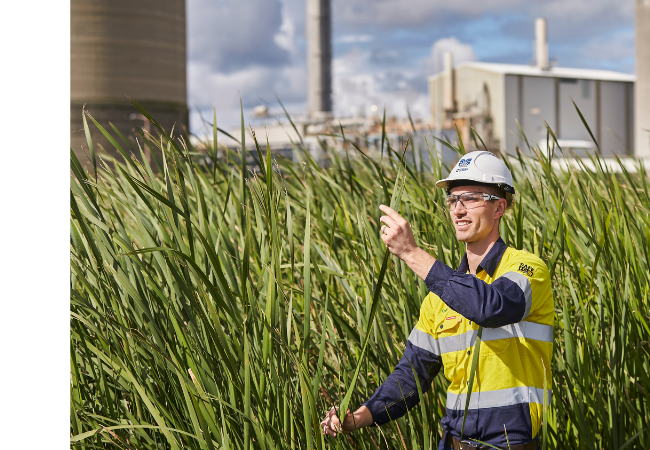What Sustainability means to WesCEF
We aim to operate our businesses in accordance with our ten sustainability focus areas. Developed in accordance with Wesfarmers community and environmental impact principles our focus areas are meaningful to WesCEF and its businesses, and ultimately influence cultural and financial outcomes.
Meeting these commitments will ensure we create value now and into the future.
For more information on our sustainability achievements in the last financial year, please visit Wesfarmers Sustainability Performance or read the latest Wesfarmers Annual Report.
-
Employee Safety and Wellbeing
Keeping our people safe and ensuring their physical and mental wellbeing
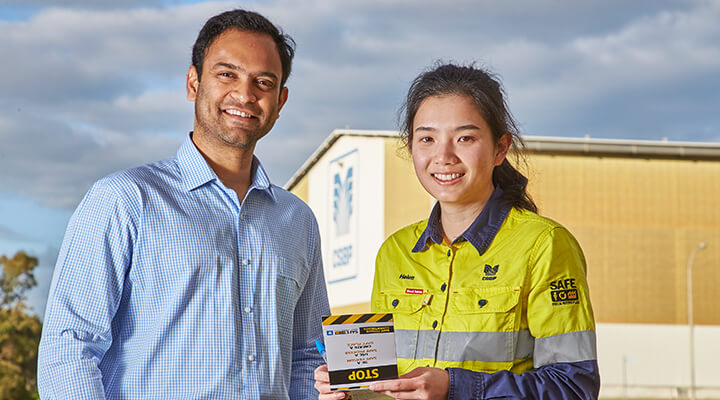
Mental health and employee wellbeing remains critically important for WesCEF.
WesCEF’s Employee Assistance Program supports team members and their families through any issues they may be experiencing.
Keeping employees physically safe at all times remains a priority for WesCEF, with a particular focus on events that have the potential to cause serious harm. These are known as high potential (HiPo) hazards and incidents.
-
Supporting Communities
Making a positive contribution to the communities in which we operate
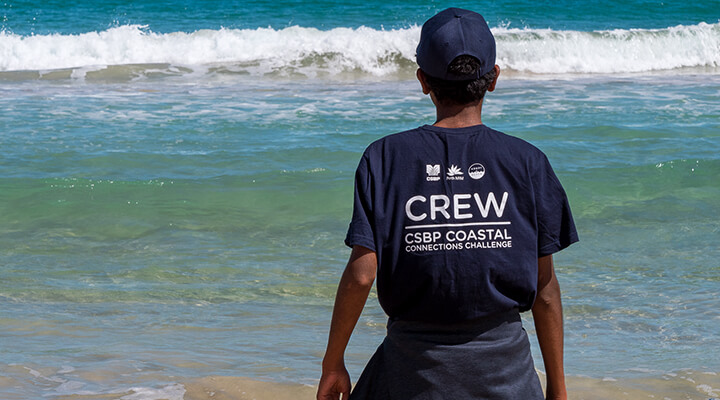
WesCEF continues to support the local communities in which it operates. This investment supports long-term sustainability of its businesses and helps build a reputation as a good corporate citizen and employer of choice.
WesCEF’s community support program focuses on four key areas: environment/sustainability, education, STEM and Aboriginal engagement.
-
Environmental Stewardship
Minimising our impact on the natural environment
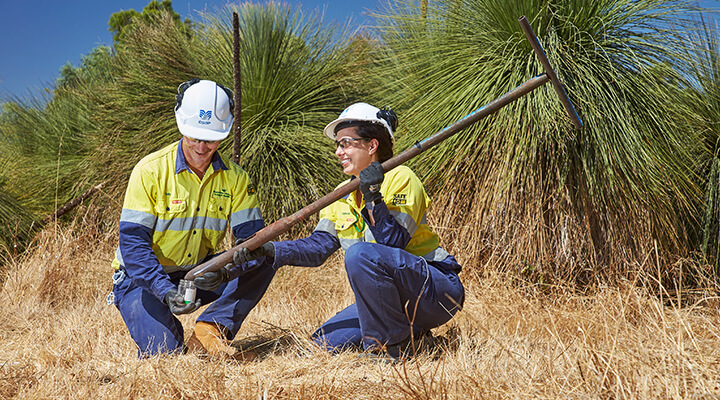
Protecting the natural environment remains one of WesCEF’s priorities and ensures the future sustainability of our operations. WesCEF recognises that our businesses have an important role to play in addressing legacy waste and climate change and that our actions may deliver economic, social, and environmental benefits over the long term.
-
Development, Diversity and Culture
Cultivating an inclusive culture that values our people and their contribution

Building the diversity of WesCEF’s workforce, in particular gender balance and Aboriginal employee representation, contributes to the inclusiveness of the business’s culture and its success.
Gender balance overall has increased through the continuation of initiatives such as gender-balanced shortlisting during recruitment, a focus on developing an inclusive culture including the implementation of a working from home policy, and a focus on pipeline development roles.
The focus continues on building the number of women in core pipelines such as engineering, technology, and operations, with gender balance achieved (minimum 40 per cent) in development roles such as vacation students, cadets, graduates, and apprentices.
-
Ethical Sourcing and Human Rights
Take actions to minimise the risk of modern slavery occurring in WesCEF businesses and supply chains.

WesCEF is committed to take actions that seek to contribute to the primary objectives of the Australian Modern Slavery Act 2018, to minimise the risk of modern slavery occurring in the division’s businesses and its supply chains. Unethical sourcing and modern slavery has severe consequences for victims, distorts global markets, undercuts responsible business, and can pose significant legal and reputational risks.
-
Product Quality and Safety
Ensuring we meet regulatory requirements and operate in a manner that meets stakeholder expectations
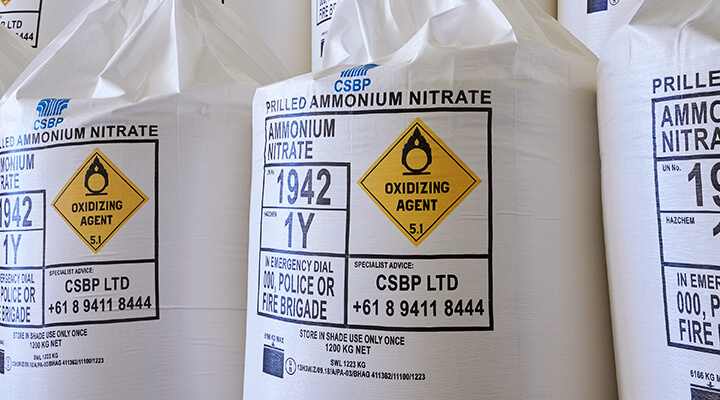
By nature of its business, many of WesCEF’s products are hazardous. Products are transported in bulk volumes to numerous locations both domestically and internationally.
While WesCEF retains a high level of control around its products and transportation practices within its sites, the level of control is diminished once the product leaves the gate due to the introduction of other road users and environmental factors.
As a result, WesCEF uses specialised chemical transport contractors with approved licenses to carry dangerous goods. For its sodium cyanide products, transport management plans are established for all Australian routes and deliveries to 90 per cent of overseas sites.
WesCEF also uses custom-built containers, tankers, isotainers, and cylinders for its products. For example, solid sodium cyanide is triple packaged inside a sea container for transport via a bulk bag, inside a plastic bag inside a wooden box.
WesCEF intends to further mitigate risks by continuing with ongoing driver competency assessments, as well as contractor audits focusing on compliance with chain of responsibility obligations.
-
Workplace Relations and Labour Management
Fostering positive workplace relations and maintaining employee engagement

The fostering of positive workplace relations leads to a strengthening of the employee/employer relationship, which maintains employee engagement. Engaged employees are healthier, safer, and deliver better business outcomes. WesCEF continually monitors its compliance with the Fair Work Act 2009 to safeguard our positive relationship with its employees and minimise risks.
-
Chemical Safety and Hazardous Waste
Handling, managing and storing hazardous chemicals
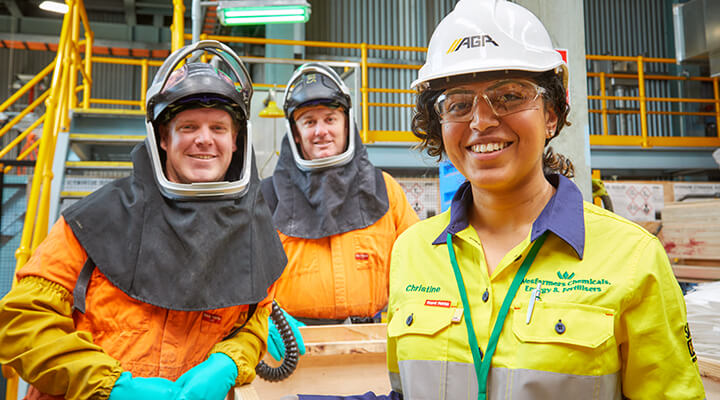
Handling, managing and storing hazardous chemicals and the challenging waste streams associated with these operations are day-to-day tasks for WesCEF. Accordingly, the business is acutely aware of the health, safety, environmental and regulatory consequences if an incident occurs. WesCEF is committed to maintaining its licences to operate and responsibly reduce, reuse and recycle waste where possible, to continue operating sustainably.
-
Circularity
Rethinking patterns of consumption, by eliminating waste and creating value for resources
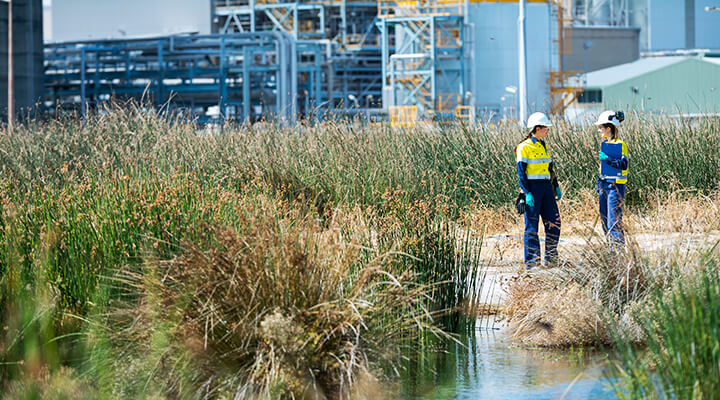
WesCEF has adopted circular economy principles, to rethink patterns of consumption, by eliminating waste and creating value for resources including by-products of its processes.
The business has initiated a circular economy assessment to explore project opportunities including identifying the ability to reuse by-products, and supply by-products and waste to other industries.
Carbon reuse and sequestration opportunities also exist and there is also the possibility for innovative fertiliser products resulting from the treatment of wastewater generated by the business.
-
Water
Ensuring sustainable water use and the management of wastewater, including reuse and recycling

Water security is critical to CSBP’s operations at Kwinana and the business’s long term water strategy aims to ensure sustainable water use, as well as the management of wastewater, including reuse and recycling.
